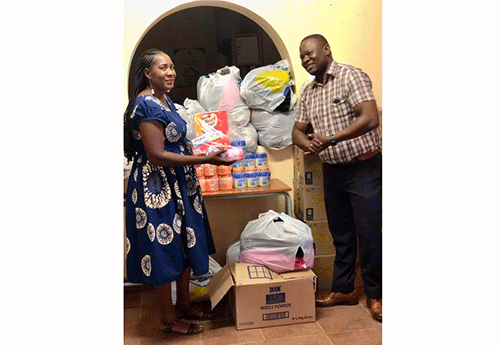Cecilia Iyambo
The Kavango East region continues to record high cases of gender-based violence, despite efforts by various organisations to curb the scourge of violence in the home and among romantic partners.
Statistics from the Namibian Police’s Gender-Based Violence Investigation Unit in Rundu show that on average, the region records over 5 000 cases of GBV annually, and over 400 monthly.
A senior social worker at the unit, Aurelia Mukundu, indicated while sharing the statistics that notwithstanding the high nurmbers, there are still numerous cases in the community which are not reported due to reasons such as fear of victimisation, or when perpetrators are related to the victims.
She, therefore, called on the public to cooperate and report all GBV cases to ensure that victims receive the necessary assistance and treatment timeously.
“There are many cases buried in communities because people are not coming forth. I’m, therefore, encouraging the public to cooperate with us and report all GBV cases so that victims can receive the necessary support,” urged Mukundu.
The social worker said this during a donation of hygiene kits to GBV survivors by the US Agency for International Development (USAID)-funded Adolescents and Children HIV Incidence Reduction, Empowerment and Virus Elimination (ACHIEVE) project. The project donated hygiene kits valued at N$37 000 containing toiletries and sanitary items to enable the gender equality ministry to better support GBV survivors placed in their care.
Mukundu commended the organisation, and encouraged other stakeholders and corporate entities to support GBV victims, noting that the unit does not receive sufficient funds to cater to all the victims’ needs.
“These items will be beneficial to the unit because when clients visit the unit, we often find ourselves in a situation where we are unable to provide them with basics such as sanitary packs,” she added.
ACHIEVE project director Taurayi Ngwande indicated that GBV is one of the core areas the project is addressing, stating that it has been shown that many girls and young women are getting HIV infections through GB. As a project, they thus aim for gender-based violence to be addressed in all its forms from emotional, physical and sexual violence.
Through funding from USAID, the project is able to address and support line ministries, including the Ministry of Gender Equality, Poverty Eradication and Social Welfare, to help them meet the needs of survivors of GBV.
Ngwande encouraged stakeholders to continue working together in the fight against GBV, highlighting his concern about the rising cases in the region.
“ACHIEVE is equally concerned about GBV that is on the rise in the region, and in our capacity, we have trained staff who provide post-clinical and non-clinical services to GBV survivors when needed,” he noted.
* Cecilia Iyambo is an information officer for the MICT in Kavango East.



